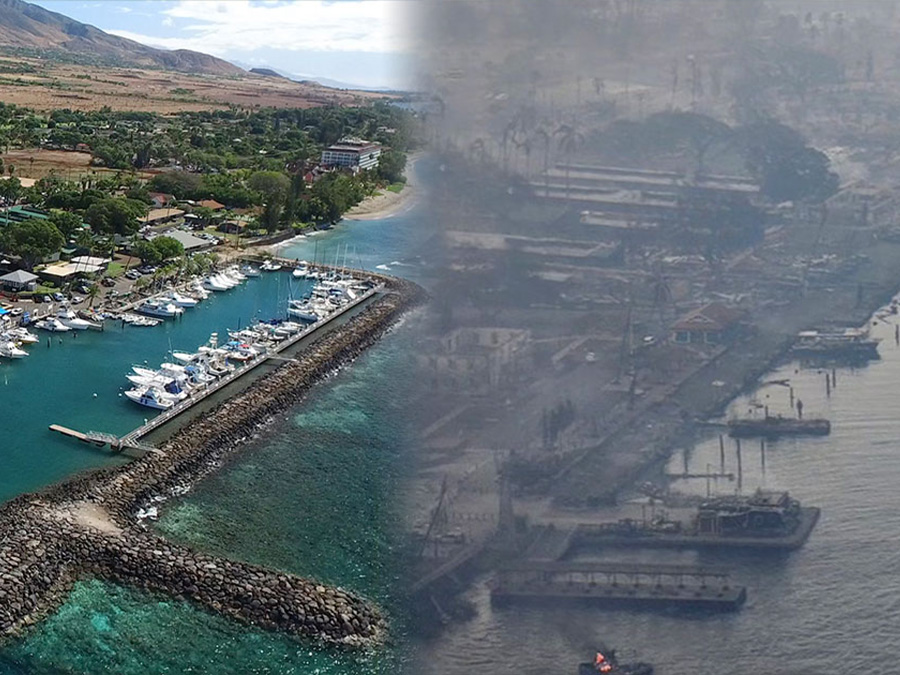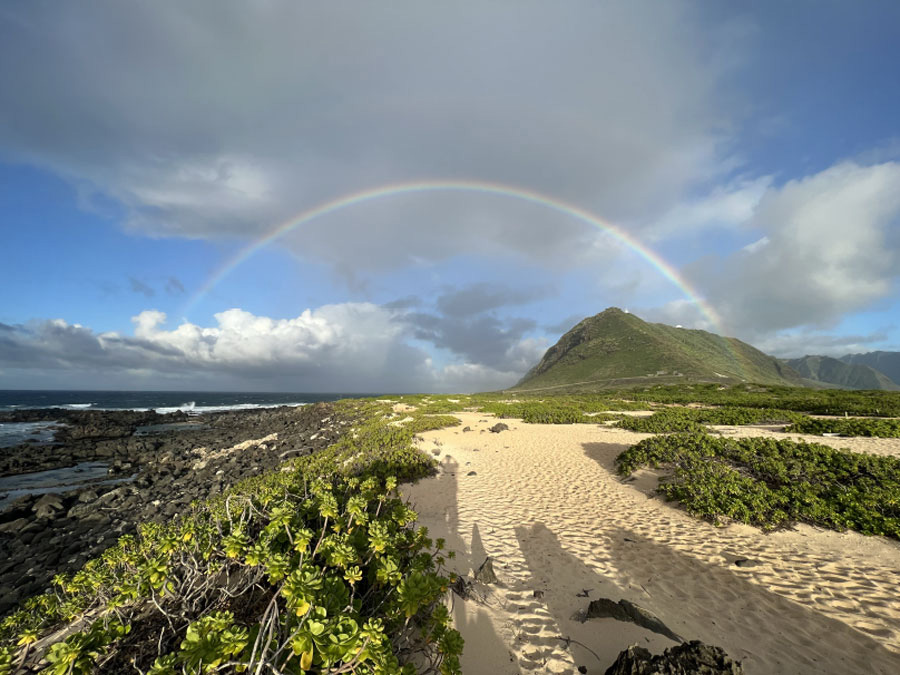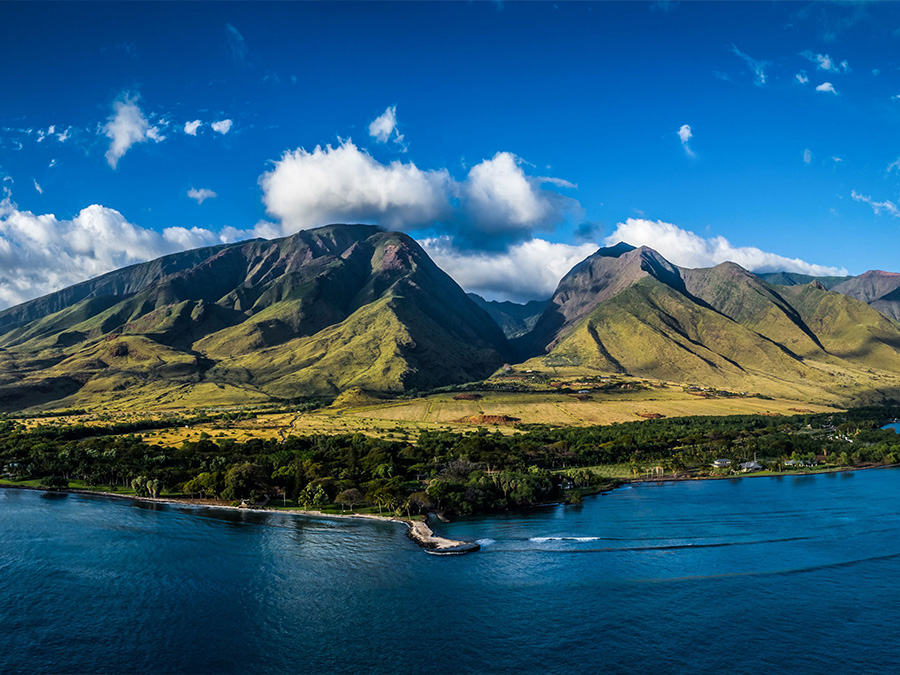In the wake of the devastating wildfires that swept through Maui, the Coral Reef Alliance felt a deep sense of urgency to act. The wildfires in Lahaina, a place many call home, not only ravaged the landscape but also struck at the heart of our ‘ohana—our family, friends, supporters, and the vibrant ecosystems we are committed to protecting. This tragedy served as a stark wake-up call, underscoring the critical nature of our mission to safeguard our oceans and the communities that rely on them.
In response, we launched the Community Resilience Fund, an emergency fund reserved specifically for climate change-related disasters, including coastal flooding, wildfires, hurricanes, and mass bleaching events. This initiative wasn’t merely a reaction to a crisis; it emerged from the necessity to bolster the resilience and health of our coastal ecosystems and communities, ensuring their sustainability for generations to come. “The people are most important right now to everyone,” reflected Heather Starck, Executive Director of the Coral Reef Alliance, in the early days following the disaster. “We have staff, family, friends, and colleagues facing unimaginable loss. Our focus is on supporting them as we all work towards recovery.” This sentiment has continuously fueled our commitment to Maui’s recovery and resilience.

Supporting Lahaina’s Recovery
The wildfires that swept through Lahaina have underscored the vulnerability of our communities and the ecosystems that sustain them. Through the Community Resilience Fund, we’ve been able to aid in the recovery of small, community-based non-profit organizations in Lahaina that share our vision for a healthier marine environment. The aftermath of the fires saw three such organizations facing unprecedented challenges, with losses that threatened to halt their crucial work. Through the Community Resilience Fund, we’ve been able to offer unrestricted support to:
- Maui Nui Makai Network A coalition dedicated to the care of Hawaii’s ecosystems, ensuring the sustainability of resources that the local communities rely on.
- Whale Trust An organization at the forefront of scientific research and education on whales and their habitats, contributing to the marine knowledge base and conservation efforts in Maui and beyond.
- Project Kahoma Committed to the restoration of Kahoma Valley, this group plays a vital role in reducing land-based pollution and protecting the coral reefs that are the lifeblood of West Maui.
By extending a helping hand to these organizations, we not only aid in their immediate recovery but also reinforce the foundation of our collective mission. Each of these groups embodies the essence of resilience and dedication to the environment and community of West Maui. Their work is integral to the health of both land and sea, which in turn benefits the coral reef ecosystems we are working to protect.

Ongoing Challenges Facing Maui’s Reefs
As for the reefs, the true extent of the wildfires’ impact remains uncertain. “We do not know the state of the reefs yet, but we’re working with our partners to find out,” says Makayla Rickard, Maui Nui Program Manager. The fires have likely left behind toxic chemicals that could be flushed into the ocean, posing significant risks to the reefs, especially those near Lahaina, like the ancient Olowalu Reef.
The main threats to these vital ecosystems are runoff and debris, which could bury the reefs, blocking sunlight necessary for photosynthesis. There’s also the risk of algae blooms, fueled by fertilizers or sewage in the runoff, which can smother corals. “In the wake of the recent wildfires, the health of our coral reefs and the quality of the surrounding waters remain top priorities for us. Our partners are currently conducting thorough studies to assess the impact. We stand ready to respond and take action based on their findings.”

Our Commitment to Recovery and Resilience
The road to recovery is long, and the community and natural resources are still suffering greatly. Our commitment to Maui and its reefs is unwavering.
This tragic event highlights the importance of climate-smart natural resource management and the urgent need to address the growing threat of severe natural disasters due to climate change,” Starck emphasizes. “We’re working with our community partners to support the recovery of both the people and the reefs. As we learn more about the full impacts, our goal is to do more to ensure the reefs recover.
Heather Starck, CORAL Executive Director
As we await more data on the reefs’ condition, our focus remains on aiding the community’s recovery and preparing for the challenges ahead. The Community Resilience Fund is one way we’re contributing to these efforts, and we need your help.
Your support enables us to extend our reach and impact, ready to respond when our communities and coral reefs need us most. Together, we can safeguard the beauty and diversity of our oceans for generations to come, honoring the legacy of our Maui ‘ohana and the vibrant ecosystems we are committed to protecting.

